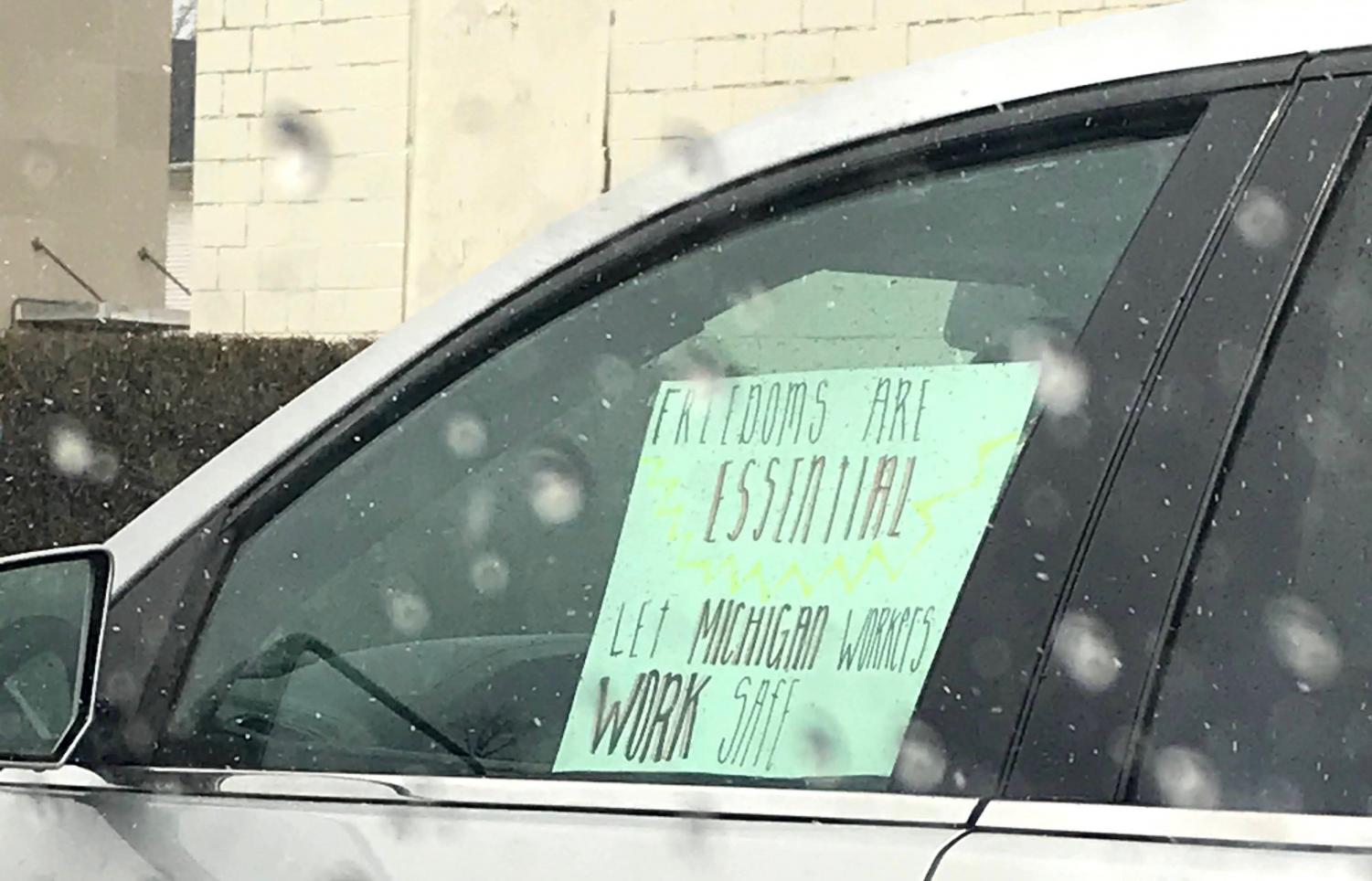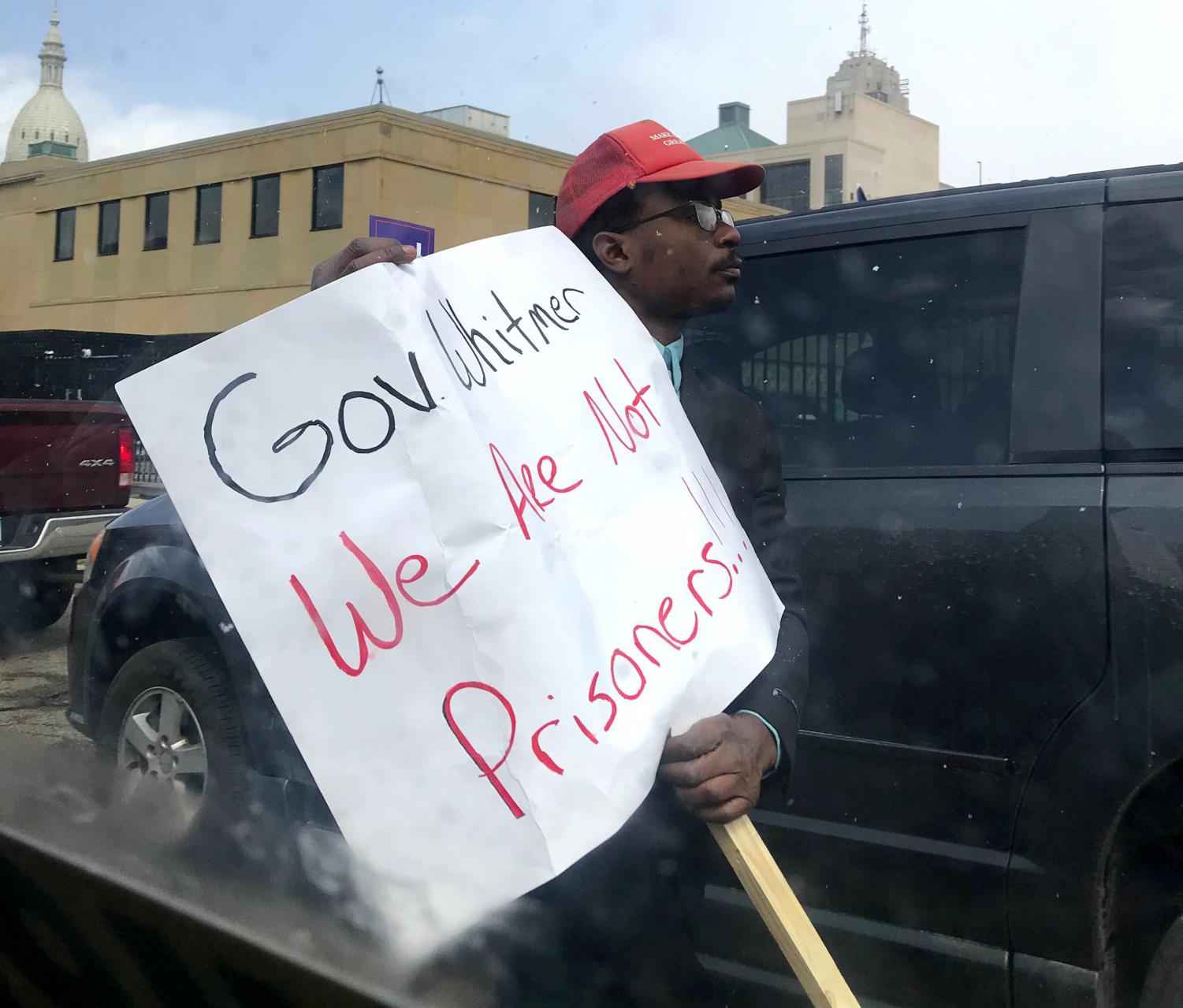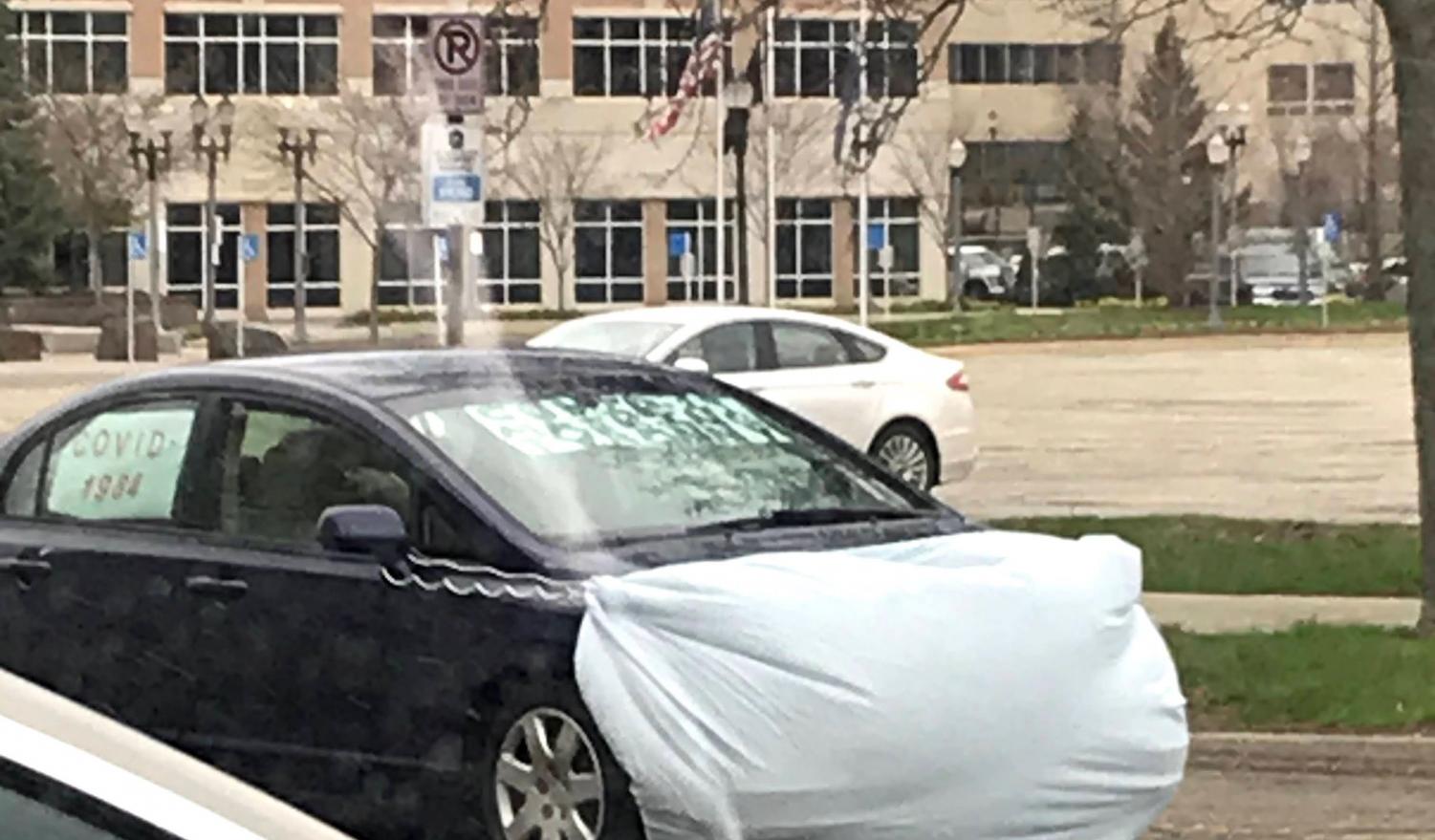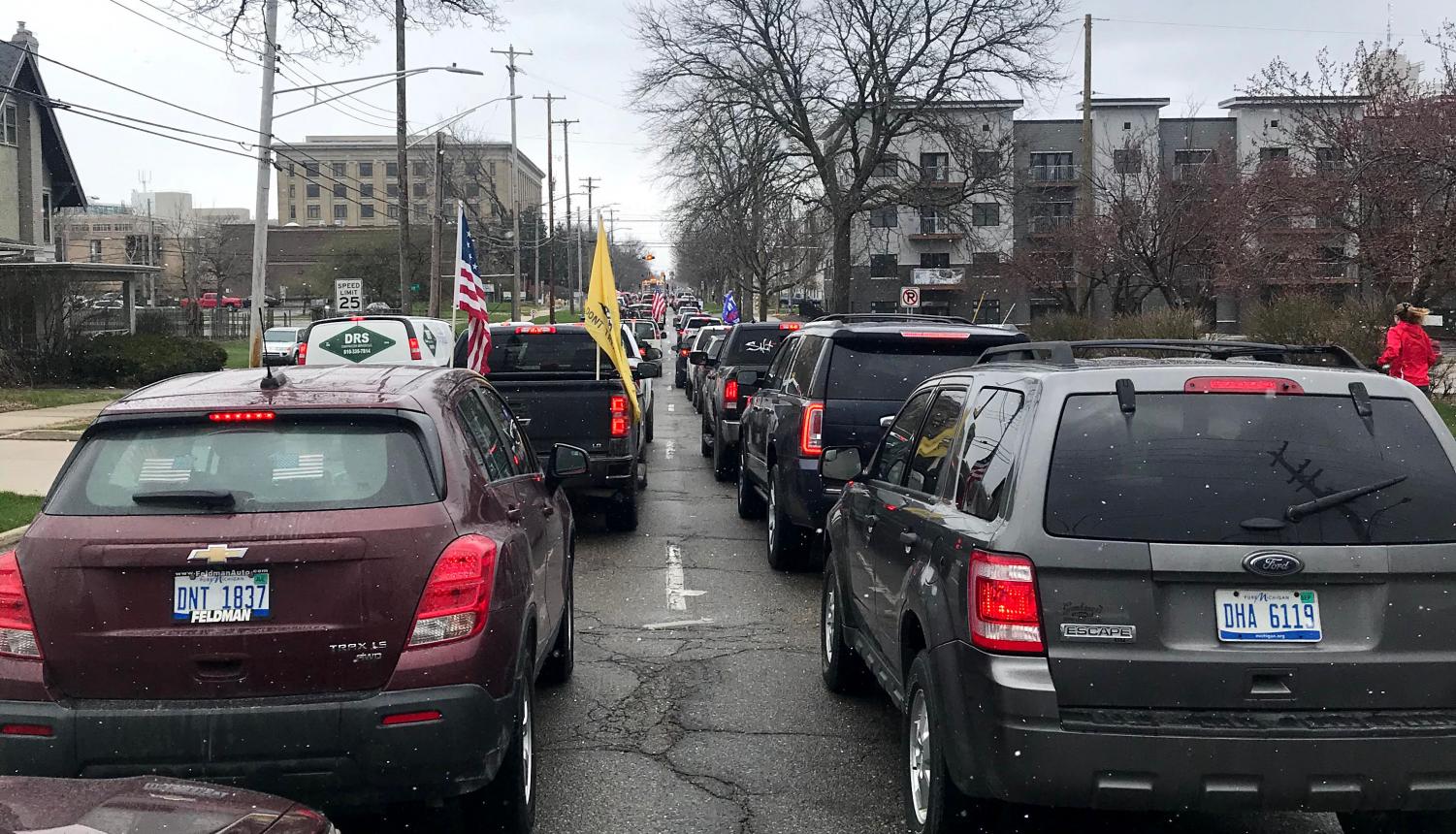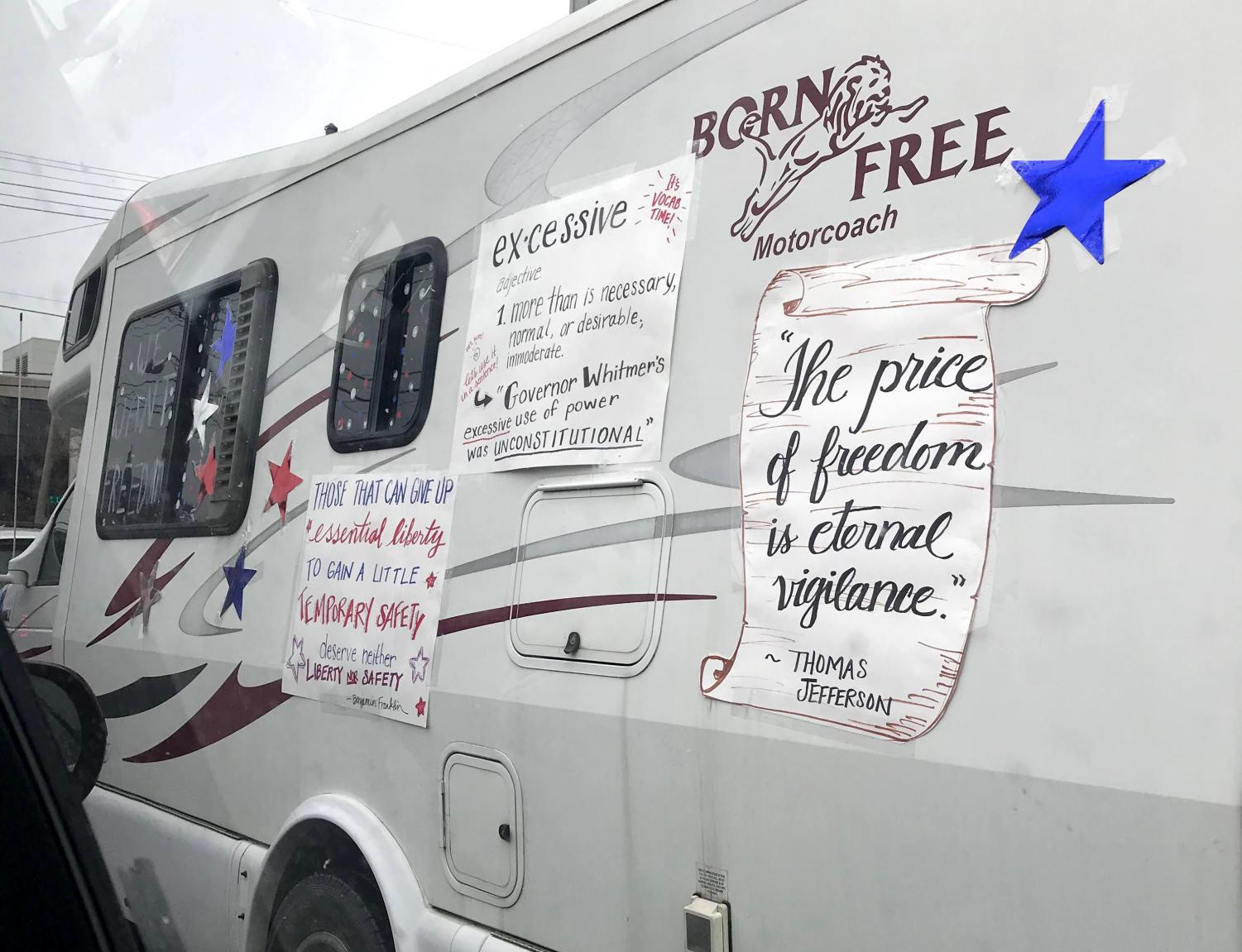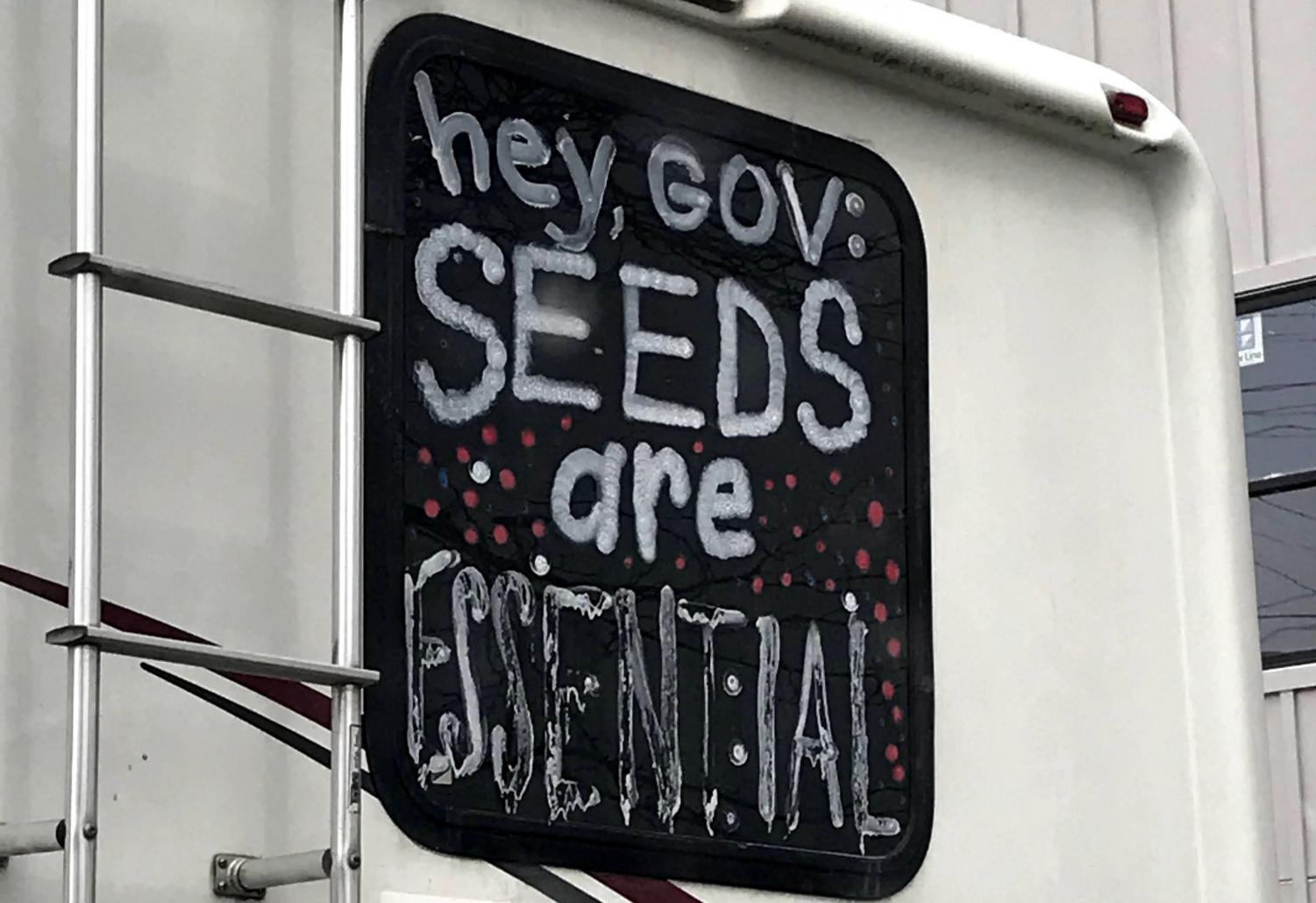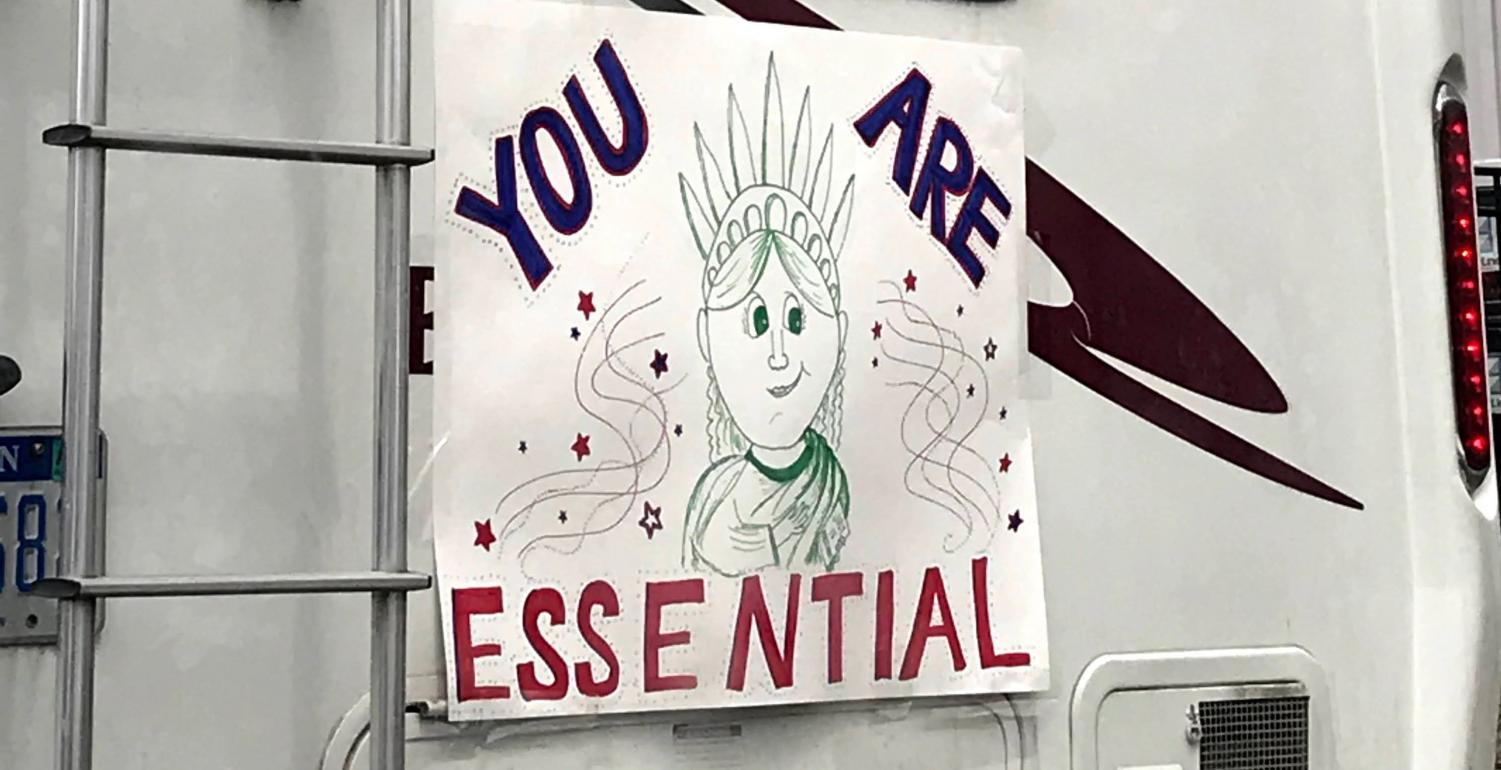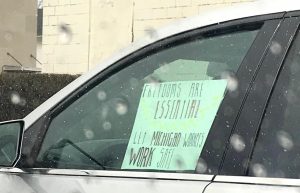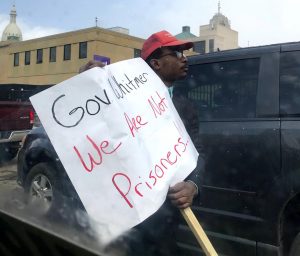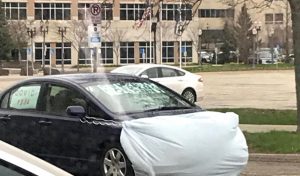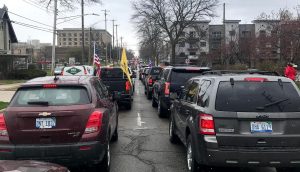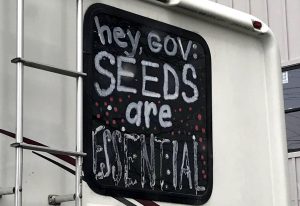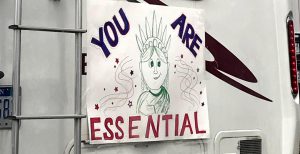‘Operation Gridlock’: A demonized protest
On April 15, thousands of Michiganders flocked to Lansing to protest Gov. Gretchen Whitmer’s stay-at-home order.
Whitmer’s original stay-at-home order went into effect after midnight on March 24, and was due to expire on April 13. On April 2, Whitmer announced that all schools would be closed for the remainder of the school year. A week later, on April 9, Whitmer extended the stay-at-home order to April 30. In addition to the extension, she ordered garden centers and areas of stores that contained furniture, paint, carpeting, and flooring closed, as well as plant nurseries. People were also banned from using motorized boats, and traveling to their second homes. Dentist’s offices were also closed in this order, and people were prohibited from seeing a doctor in person unless they had an emergency or it was COVID-19 related. On Friday, April 24, Whitmer again extended her order, to May 15, but loosened some restrictions, including those on boating, and garden centers, but made face masks when going out in public, a requirement. This requirement has no fine or ticket involved, and is not enforceable by law, but stores can deny service to those not wearing masks.
Many people have questioned the logic behind this protest, saying things online like, “They’re just upset because they can’t plant their tomatoes.” or simply labeling it as pathetic. But among those who attended, this protest was more than what many think. Unemployment has skyrocketed in Michigan, as companies and small businesses are laying off thousands of workers each day. A new class of poverty is being created by shutting down so many businesses. According to Washington Post, “Roughly a quarter of Michigan’s workforce is now trying to obtain unemployment aid.” Small businesses are among those heavily impacted as well. They’re having to lay off workers, and essentially hand over keys to their landlords, closing permanently, because they can no longer afford to stay open.
Suicide rates have gone through the roof, as isolation can be a big trigger for addicts, and those with mental health issues, especially if they can’t get the help they need. According to former U.S. Rep. and mental health advocate Patrick J. Kennedy, suicide hotlines are seeing an 800% increase in calls. Addiction issues are also becoming more prevalent, as people struggling with addiction can’t meet with their support groups. Due to more people sitting at home idling, alcohol sales have spiked, and this can create its own problem by contributing to addiction, and hampering people’s abilities to make logical decisions.
For victims of domestic violence, staying home all the time is not safe, and advocates say, most of the nation, amidst this crisis, has turned a blind eye to victims of domestic violence. According to Bridge Michigan, calls to the Michigan Coalition to End Domestic and Sexual Violence are up from last year, with 393 calls being placed in March and the beginning of April, compared to 189 in the same time period in 2019. As restrictions tighten, escape from domestic violence is not an option, and people find themselves trapped in dangerous situations. Home isolation is giving more power to abusers whose tactics include isolation from family, friends and support systems.
According to the Michigan State Police, around 10,000 people showed up to the protest to sit in their cars, honk their horns, and rally in front of and around the Capitol Building. Even though the official protest was not scheduled to start until noon, many showed up as early as 9:30 a.m. to “gridlock” the streets. The original rules of rally planners included staying in vehicles to adhere to social distancing, but some chose to get out of their vehicles and protest in front of the Capitol Building. This received a lot of criticism, as the media mainly reported on those who chose to go against the protest guidelines, but the majority of protestors stayed in their cars. In fact, organizers say the point of an in-car protest was to adhere to CDC guidelines, and not cause controversy, simply to bring awareness to issues people had with the extension of the stay-at-home order. At the protest, there were many signs, stating that people agreed with social distancing measures, but that unemployment is not the answer for the economy or our livelihood as a country. Other interesting signs pointed out the fact that alcohol and in person lottery ticket purchases were considered essential, but growing vegetables was not. Among some making this argument were farmers whose growing seasons could’ve been potentially ruined, and source of income for the year lost had Whitmer not eased restrictions. The day prior to the protest, over 2,000 people on Facebook had RSVP’d, and a Facebook group called Michiganders Against Excessive Quarantine had gained more than 250,000 members in less than a week.
The New York Post, among other news sources, reported that “Michigan Gov. Gretchen Whitmer has been hit with at least two federal lawsuits challenging the social distancing orders she imposed to battle the spread of the coronavirus that requires people to stay at home and most businesses to shutter their doors.” Attorney David Helm, who is representing the Michiganders in these case,s gave a statement: “We believe it is over-broad and over-reaching. There is a way to do it appropriately without infringing on Constitutional rights like the governor has.” In addition to the individual lawsuits, a Michigan conservation coalition sued Whitmer to overturn the state’s ban on motorized boating during this pandemic.
Partisan politics have completely taken over the public’s perception and response to COVID-19, but it’s important to look at the bigger picture, and read more into why people may be protesting these orders. No, this was not simply a “political rally” as many have tried to diminish it to, it was to bring awareness to the lives that COVID-19 is indirectly affecting as well. This protest was to start conversation, and highlight the many issues being caused by lockdowns such as suicides, small businesses that will close their doors and lose their livelihoods permanently, the victims of domestic abuse, the people with zero income wondering where their next meal will come from, the people struggling with substance abuse that may lose their sobriety because of this, and the overall state of the economy crashing down around us. Balance in how this virus is handled and discussed is vital, as the country becomes more and more divided over measures taken each day. Many have talked about privilege, and how these protestors are “Nothing but privileged,” but maybe those same people should ask themselves if they’re worried about where their next meal is coming from, or where their next paycheck is coming from. Clearly there’s more to each viewpoint than “stay home” or “go to work,” but both must be considered valid for a more balanced approach.


